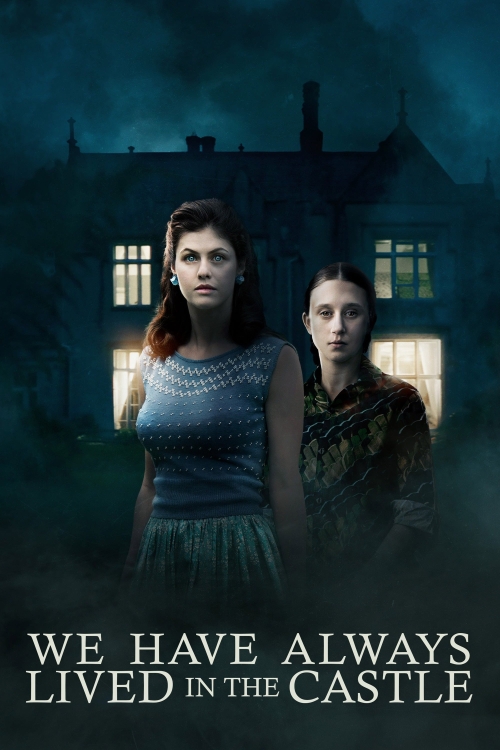


She’s caught in the grief stage after losing her freedom, romance, and parents in one fell swoop. Not only has Merricat been silenced by the men in her life, but Constance also has experienced a similar muzzling. They bring to life Jackson’s resonant, evergreen narrative dealing with women finding their voices, adding stylized flourishes in the process. In that sense, Passon and screenwriter Mark Kruger are successful.

However, when their estranged, suave cousin Charles (Sebastian Stan) pops in for an unannounced visit and begins assuming the role of the family patriarch, his presence completely upends Merricat’s world.īoth the cinematic adaptation and the source material are less concerned with “whodunit” (although we do find out by film’s end) than they are about the issue of female agency at a time not especially conducive to it. She buries talismans - such as dolls, coins, and other accoutrements - in her backyard to ward off evil spirits. Merricat spends her days casting magic spells to make sure the Blackwood kingdom is kept safe from any perceivable threats, like angry townsfolk or nosy gossips. But that doesn’t mean they’ve successfully avoided the ire of the resentful victims of their father’s ideologies. The gorgeous Gothic mansion sits high above a small New England town, like a judgmental god lording over the people.Īfter a mysterious tragedy involving an arsenic-laced sugar bowl befell the Blackwood family six years prior - one that robbed the young ladies of their parents and left Uncle Julian an invalid - the Blackwoods have kept to themselves, only venturing into town for necessities. Socially awkward 18-year-old Mary Katherine Blackwood ( Taissa Farmiga), nicknamed “Merricat” by her family, lives with her agoraphobic sister Constance ( Alexandra Daddario) and anguished, barely lucid Uncle Julian ( Crispin Glover) on the sprawling grounds of Blackwood Manor. Stacie Passon, director of “We Have Always Lived in the Castle,” sharply channels the author’s atmosphere of dread, paranoia, and isolation, making the past feel prescient. Her stories speak to a darker side of humanity. That hasn’t stopped filmmakers who, every few decades, revive the works of novelist Shirley Jackson. Today, when it comes to spine-tinglers, moviegoers seem to value jump scares and gore over psychological brooding. If the recent failure of films such as “The Little Stranger” and “Marrowbone” has taught us anything, it’s that audiences don’t seem as thrilled with good, bone-chilling Gothic mysteries as they once were.


 0 kommentar(er)
0 kommentar(er)
